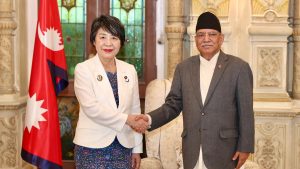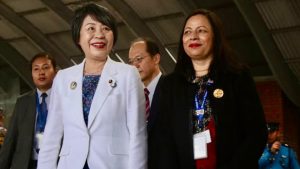
China Arrests Ministry Official Allegedly Spying for the CIA Amid Economic Troubles
China’s Ministry of State Security (MSS) announced on Monday that a senior ministry official has been arrested on charges of espionage for the U.S. Central Intelligence Agency (CIA). This revelation comes as the second such claim in just 10 days, as China escalates its efforts to counter alleged foreign intelligence activities amidst growing economic challenges.
The accused individual, a 39-year-old Chinese national with the surname Hao, held a cadre position within an undisclosed ministry. According to the MSS statement, Hao was allegedly recruited by the CIA during his time studying in Japan. The agency did not reveal details regarding Hao’s gender or the specific ministry he was associated with.
This development follows closely on the heels of another arrest made by the MSS involving a military-industrial worker accused of spying for the CIA. The Chinese government has been urging the public to actively engage in counterespionage efforts, which has raised concerns in the United States.
However, some China experts view these espionage claims as a potential diversion tactic. They suggest that the Chinese Communist Party (CCP) could be using these high-profile cases to divert public attention from the country’s economic challenges. With an ailing economy marked by rising unemployment, including record-high youth joblessness rates, and the ongoing financial turmoil within major real estate firms like Evergrande and Country Garden, the CCP is facing mounting pressure.
Lai Jianping, a former Chinese lawyer and current affairs commentator, believes that the CCP might be utilizing these allegations of foreign espionage to create a common external enemy as a means to distract from domestic economic troubles. He suggests that these claims could offer a pretext for the government to tighten ideological control over the population.
The recently expanded anti-espionage law, effective as of July, has broadened the definition of espionage to encompass documents, data, materials, or items linked to national security and interests. The law’s vague language has prompted concerns about a potentially hostile environment for foreign businesses and journalists operating within China.
Despite claims of progress by both sides, the true nature of these espionage allegations remains uncertain. While some experts speculate that Beijing’s claims could be fabricated to serve political purposes, others believe that the accused Chinese national could indeed be acting as a U.S. agent. Amidst these uncertainties, the ongoing interplay between espionage allegations, economic troubles, and domestic control measures continues to unfold in the complex landscape of China’s political and economic dynamics.
(International News Agency contributed to this report.)
















Comments